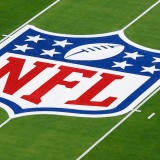
The NFL has made very few concessions to the coronavirus pandemic. It did not delay the beginning of free agency. It did not delay the draft. It has kept teams rolling through their offseason programs with the only tweak being that OTAs took place virtually, rather than in person. The league has staunchly maintained that it intends to play a full 2020 season and recent reports have indicated that it even intends to have fans in the stands for those games, even if those fans have to sign a waiver. The NFL additionally does not intend to delay the 2021 NFL Draft, even if the college football season has to be postponed until the spring.
One change the league is reportedly considering, though, is shortening training camp rosters, in addition to training camp itself, as well as the preseason. According to several reports, the league is expected to cut training camp rosters from the usual 90 players to something more in the neighborhood of 75 or 80.
Ostensibly, the reasoning for this is that it will help teams combat the coronavirus pandemic. Making an effort to reduce the risk of COVID-19's spread among the NFL population is admirable, and the responsible thing to do. But the league could also probably do more than feinting in that direction by reducing the number of players in camp by 11 to 16 percent. There will presumably still be the same number of coaches, trainers, and other personnel on hand, so it's likely that these cuts amount to a reduction of less than 10 percent of the usual number of people in training camp.
Of course, there is no one action the league could take to guarantee the health and safety of its players and coaches. With a communicable virus, there are only degrees of mitigating risk. But if that is the actual intention, then merely dropping 10 to 15 players from training camp rosters seems somewhat insufficient; because while the presence of each additional player in camp does likely raise the risk of an outbreak, it is not as though groups of the size the NFL will bring to camp even after these cuts are universally considered safe from community transmission.






















